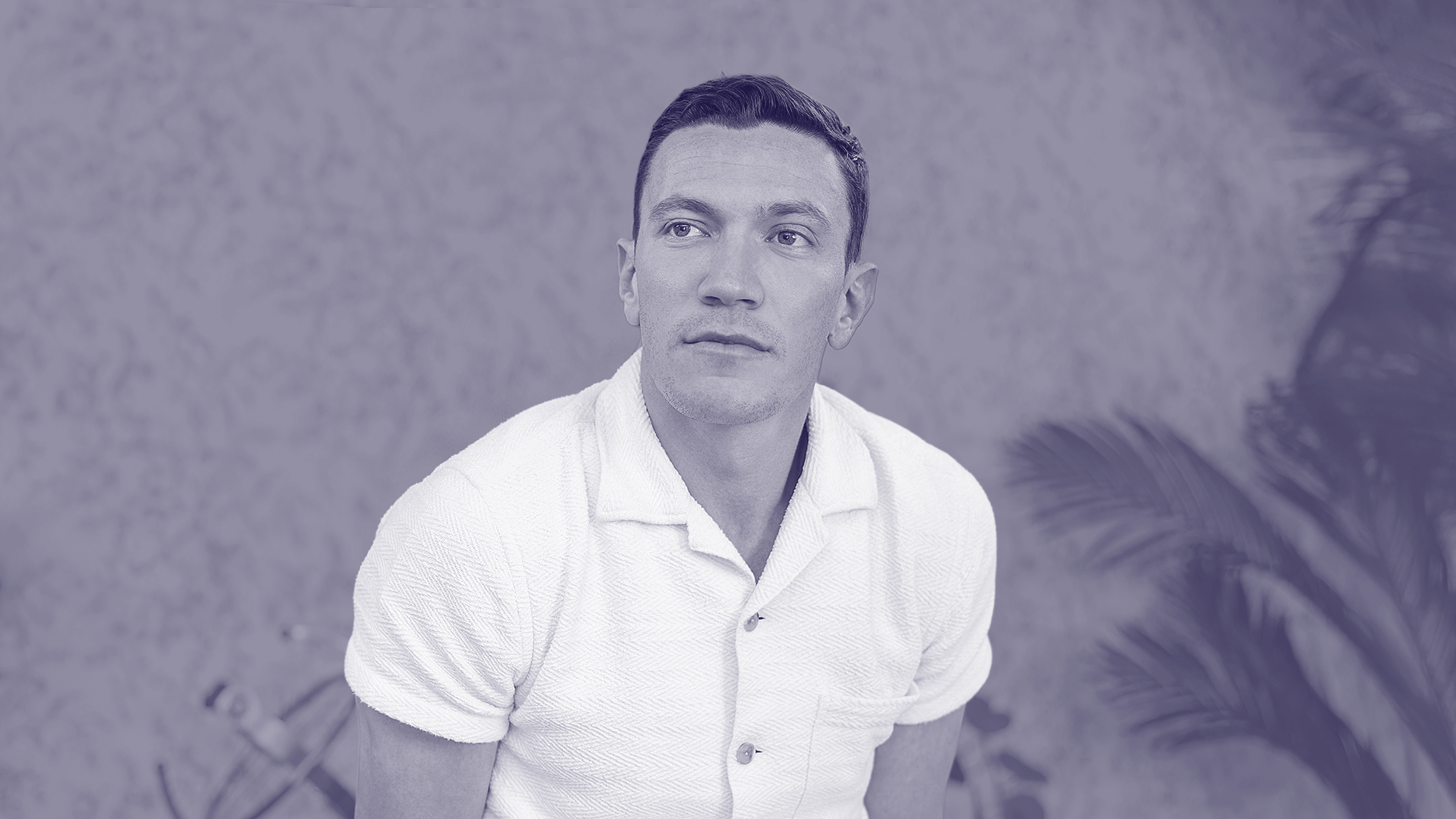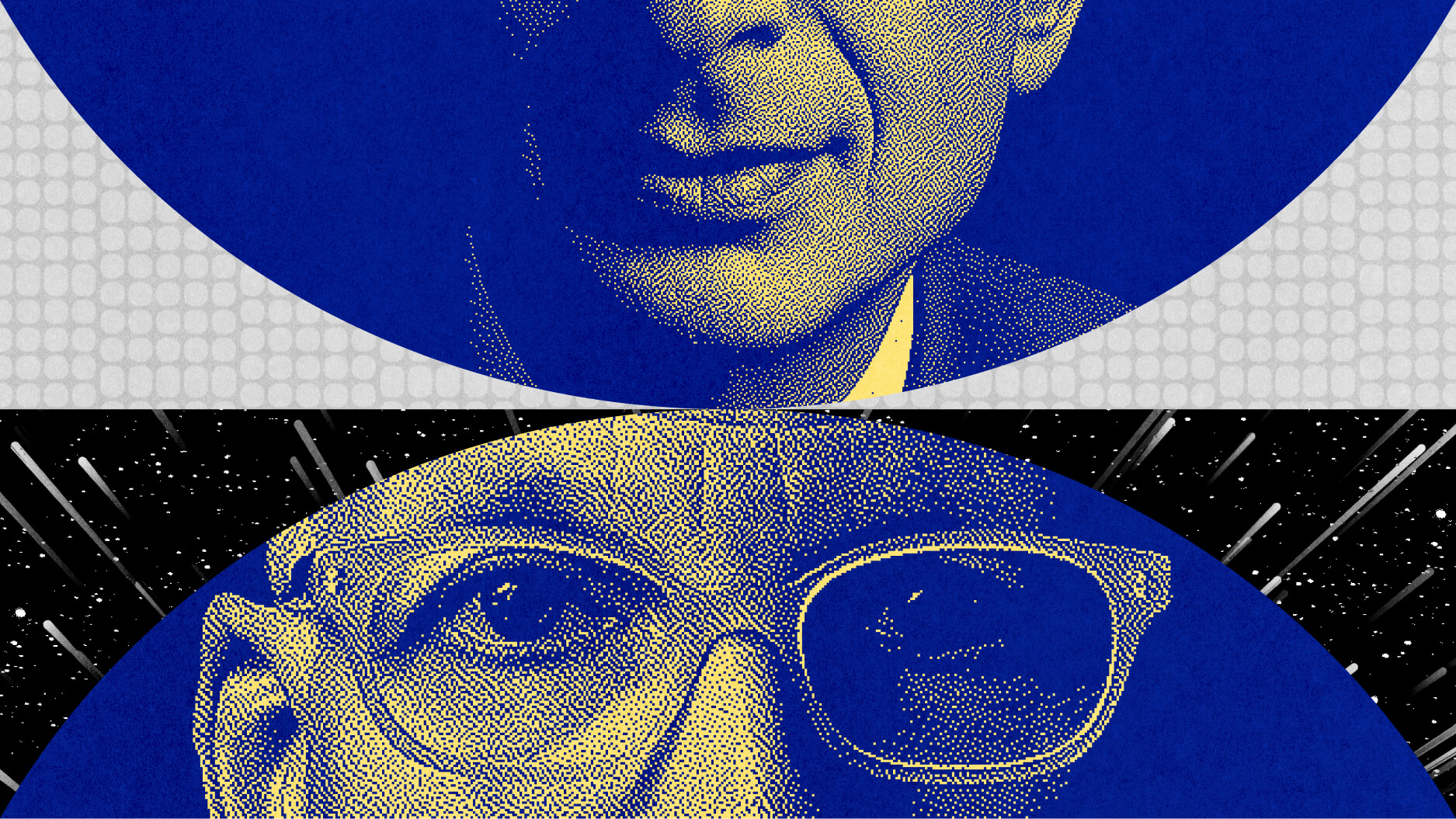If you ask tech entrepreneur Oliver Luckett, he’ll tell you we’re at a very interesting phase in the U.S.’s social development. The 2016 election propelled things forward drastically, and the catalyst for that largely has been social media, and specifically Trump’s raw Twitter feed. This forward propulsion? It’s not a good thing – unless you look at it from an ‘if you want to make an omelet, you gotta crack some eggs’ perspective. Sometimes you have to break down in order to build up. “Evolution is not necessarily progress,” says Luckett, “it’s one of the biggest themes of the book that I hope that people understand… just because something is evolving and changing doesn’t mean that it’s moving forward in a progressive manner.”
In the new book The Social Organism co-authors Luckett and Michael J. Casey offer an intriguing idea: that social networks mimic the rules and functions of biological life. In Big Think’s chat with Luckett above, he weaves an intricate picture of the social virus that has gripped the United States, one that was coaxed out over the course of the 2016 presidential election, externalizing hateful emotions that were buried under the surface – not at all different from the way the HIV virus hides itself in dendritic cells. Concealment makes a virus impossible to kill. It must be ferreted out and the virus triggered.
Liberal America really didn’t see it coming; it was shielded from reality by selective reading and the algorithmic segregation that feeds people mostly content that appeals to their sensibilities, rather than challenges it. The exposition of the nation’s true feeling was shocking for some, but the silver lining is that at least the U.S. has now received its diagnosis. “I think that we’re now starting to see everything for what it is. I think that we’re actually starting to reabsorb our society and we’re starting to see it and now we have these individual decisions to make at a very granular level that I don’t think we ever thought of before,” Luckett says.
Now that liberals are free from their echo chamber and the virus, as it were, is out in broad daylight, we can recognize the fundamental issues that landed the U.S. here and turn it into a moment that leads to action – to the kind of evolution that Luckett hopes will be progressive.
Luckett and Casey’s book is The Social Organism: A Radical Understanding of Social Media to Transform Your Business and Life.
Oliver Luckett: If you look at any of the kind of countercultural theorists that came out of the '60s at the Berkeley, the Neil Postman's, the Theodore Roszak's, they kind of fundamentally, even into the talking heads, they kind of fundamentally they meant something to me when I was studying French literature at Vanderbilt, Renaissance literature, which really was the period of literature that emerged after the invention of the printing press. And at first it was pornography and comedy and then it went into more secular literature, you know, stories, drama, et cetera, but it was always kind of the first to colonize is pornography and comedy. And then I started getting really into these kind of counter cultural theorists that were looking at the time at mass communications like television and radio as these everything from big brother to numbing us to selling desire in America to creating this kind of religion of capitalism.
Twitchell wrote this amazing book called Adcult where he equated modern advertising capitalism to a religion and it had its iconography and it had its dogma and it had its if you do this then this will happen and if you use the American Express card then you too will have three percent body fat walking down the beach with this beautiful person on your arm. And so those were all these I think precursors to what we're experiencing now because I think we were really trained a set of values and capitalism that meant that money ruled all. We're talking about a troll president on Twitter now but at the end of the day a majority of people think that a person that has a billion dollars is smarter than everyone else. And so at a fundamental level if that's our religion then this guy won. He's a winner. He's got his billions of dollars and his airplanes and his Twitter account and he can speak directly to the masses.
So what I think is fascinating, you never heard Donald Trump Facebook this because that's not a raw feed anymore. That's controlled by algorithms. So he saw that Donald Trump tweets this because it's still a raw fire hose and so it's still a direct connection. And so we're constantly seeing these arbitrages of these new characters that emerge. I've represented 6,500 kids that had no fame whatsoever in the world four years ago and then suddenly Vine came along and six seconds lead to fame and Instagram came along and Acacia Brinley took the perfect selfie and at 17 had a million followers on Instagram and so our value system changed overnight. All the things that we held valuable now we suddenly saw, and maybe it was always that way, but now we just had camera phones recording it. So when people make the comment about police brutality, like well it's always been there it's just now we're recording it, now we're seeing it.
And so I think that we're going through this really interesting phase, especially after this election where we now have a majority of people connected in these systems and we can now see a lot of different aspects of the world that we might not have been privy to because of this top down media. The idea that the media was astonished that 60 million people in America voted a different way is kind of a joke. Like you weren't listening? You were in such an echo chamber - so they're a victim of algorithmic, they're a victim of social segregation, of algorithmic segregation. And so I think that we're now starting to see everything for what it is. I think that we're actually starting to reabsorb our society and we're starting to see it and now we have these individual decisions to make at a very granule level that I don't think we ever thought of before and I don't think that we saw ramifications so vividly portrayed in real quantitative analysis.
I mean we're all getting data on ourselves now that we didn't have before. Maybe we mouthed off in class and said something to another person and somebody said oh you're a jerk or whatever, but we didn't have large scale lynchings like we have now in social media when you put something out there. I mean think about the polarization that happened in this last election where people are like I'm unfriending you, I'm blocking you, that just created a bigger schism in our society except we're seeing it now. And I think that's the fascinating thing that's happening. And that's why I keep going back to this idea of evolution. Evolution is not necessarily progress, it's one of the biggest themes of the book that I hope that people understand because they're very nuanced ideas but just because something is evolving and changing doesn't mean that it's moving forward in a progressive manner. It doesn't mean that it's getting better necessarily. We have evolutionary moments throughout living history where things kind of went this way and oh it didn't work out so well and they've died off.
And so hopefully a lot of these directions where we're kind of seeing hate for what it is. In immunology there's a great example of this if you look at the HIV virus, we've now been grappling with this for over 30 years now and scientists have gotten really good at containing it. You can take a combination of drug cocktail, of heart treatment and you can go in and you can basically eliminate the virus from the bloodstream. But the virus is tricky in that it hides itself in dendritic cells and very deep kind of in stem cell layer of our bodies and it can hide out for seven, ten, 15 years. And so the second you stop suppressing HIV it pops back up, it mutates, it becomes more virulent, et cetera. And so there are two big theories right now in modern kind of treatment for that. One is ferreting it out, trying to cause the body to trigger, to release the kind of stored HIV by kind of shocking it and ferreting it out. I look at that a lot like what's going on with the hate that's buried inside of these people. We suddenly had a catalyst that's ferreting out these hate emotions in our society.
And then the other thing and the other way to really cure it if you look at the Berlin patient, for instance, or the Delta, I believe it's Delta 32 variant, was six percent of living northern Europeans that have a immunity to HIV or to the most popular strain of HIV. And so what we're doing is in science we're now taking stem cells from those people and trying to rewrite a person that's infected with HIV's body so that they can recognize the antigen of HIV and so that they can use their own immune system to either protect against it or to get rid of it, to either inoculate yourself against HIV and change the actual T cells floating around in your bloodstream or to actually teach it how to recognize that as a virus, as a foreign antigen and to then rid itself by using the own body's machinery. So you're really re-teaching your body that this is bad.
I look at our culture right now as the exact same analogy because we have to teach ourselves at a cellular level that this is bad. I start the book off with the confederate flag, for instance. It took 150 years and a mass shooting in South Carolina and a guy draped in the confederate flag saying he wanted to create a race riot for us to suddenly realize that maybe that flag is racist. Maybe it's a symbol of hate. Maybe it's a symbol that we need to get rid of in our culture. And so it then takes us as individuals to learn that and to change ourselves and to not propagate that or to learn how to squash it out at a local level. And so I think the exact same thing that we're learning now with immunotherapy for HIV, for cancer, for all those things about teaching our body that this is bad, I think we're now learning that in our society of maybe the hail Trump is a pretty terrible thing that we should squash out pretty quickly in our society and not let it happen. But had he not been there that would stay underground and would it fester? Would it get worse? I think there's a good moment that we're seeing this for what it is so that we can act upon it in a very organic natural way and hopefully get rid of this in our society as fast as possible without letting it rise up and fester.
And the notion that our media or us we're surprised that 60 million people around us felt differently is a big warning sign. Who would be surprised that 60 million people thought differently if you were aware of what they were thinking and you weren't living in a bubble? So that's what I think is the biggest opportunity right now with what we're seeing in the new social culture emerging.







